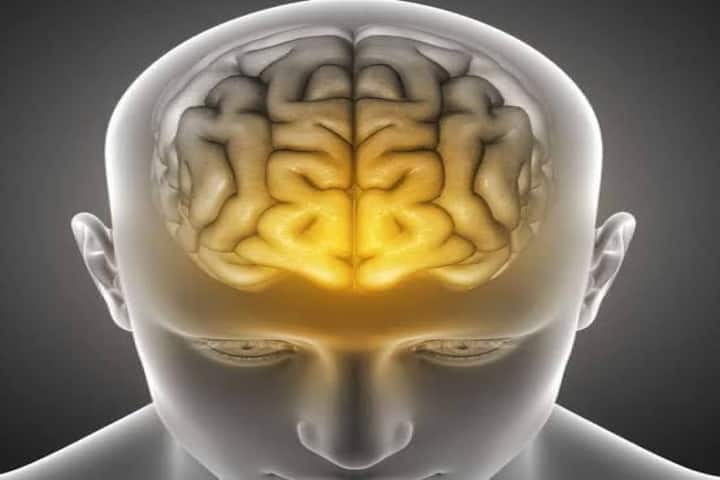

Brain and its blue spot
A ‘blue spot’ in the brain linked to sleep and memory has been identified by researchers, an advance that may help understand how sleep is regulated.
It has been known for a long time that sleep is good for the brain.
We also know that light is not just for seeing, but also plays an important role in other aspects such as mood.
What we don’t know is how all this happens in our brains.
A team from the University of Liege in Belgium using ultra-high field 7 Tesla MRI demonstrated that the quality of our REM sleep (the part of sleep during which we dream the most) is linked to the activity of the locus coeruleus.
This small brain nucleus, the size of a 2cm-long spaghetti, is located at the base of the brain (in the brainstem).
The locus coeruleus — Latin for “blue spot” — owes its name to its colour when observed in autopsy. It projects to just about every area of the brain (and to the spinal cord) to secrete a neuromodulator called noradrenaline, which is not only important for stimulating neurons and keeping them awake, but also for a whole series of cognitive processes such as memory, emotional processing, stress and anxiety.
Its stimulating activity must diminish to initiate sleep and stop to allow REM sleep. “This allows REM sleep to work without noradrenaline, sorting out the synapses that need to be retained or eliminated during sleep and enabling a new day, full of new experiences,” says Gilles Vandewalle, from the varsity.
Animal research has already shown that the functioning of this small nucleus is essential for sleep and wakefulness. “In humans, little has been verified because the small size of the nucleus and its deep position make it difficult to observe it in vivo with conventional MRI,” said Ekaterina Koshmanova, a researcher in the laboratory and first author of the article published in JCI Insight.
“Thanks to the higher resolution of 7 Tesla MRI, we were able to isolate the nucleus and extract its activity during a simple cognitive task during wakefulness, and thus show that the more reactive our locus coeruleus is during the day, the poorer the perceived quality of our sleep and the less intense our REM sleep.”
This seems to be particularly true with advancing age, as this effect was only detected in the individuals aged between 50 and 70 included in the study and not in young adults aged between 18 and 30. This finding could explain why some people become progressively insomniac with age. These initial results also lay the foundations for future studies on the activity of this small nucleus during sleep and the role it could play in insomnia and in the link between sleep and Alzheimer’s disease.
Also read: Overdose of multivitamins may cause cancer: Study
Australia's High Commissioner to India, Philip Green OAM, called Yoga one of India's gifts to…
The Bharat Sanchar Nigam Limited (BSNL) has announced the soft launch of BSNL Quantum 5G…
The Indian Embassy in Iran has said that the embassy will make efforts to evacuate…
India's gross direct tax collections for the financial year 2025-26 rose by 4.86 per cent…
Russian President Vladimir Putin has said that Moscow is not seeking Ukraine's unconditional surrender, but…
Extending his greetings on the 11th International Day of Yoga, Lok Sabha speaker Om Birla…